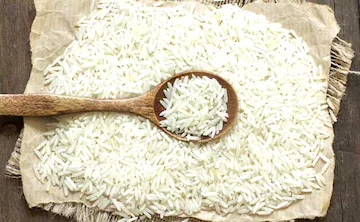FSSAI regulatory standards for Basmati Rice
The Food Safety and Standards Authority of India (FSSAI) has specified the identity standards for basmati rice. The comprehensive regulatory standards will be enforced from August 1, according to a statement from the Union Health Ministry. These standards apply to brown basmati rice, milled basmati rice, parboiled brown basmati rice, and milled parboiled basmati rice and are intended to establish fair practices in the trade of basmati rice and protect consumer interest, both domestically and globally.
Standards for Quality and Identity
As per the standards, basmati rice must possess the natural fragrance characteristic of basmati rice and be free from artificial coloring, polishing agents and artificial fragrances. The standards also specify various identity and quality parameters for basmati rice such as average size of grains and their elongation ratio after cooking, maximum limits of moisture, amylose content, uric acid, defective/damaged grains and incidental presence of other non-basmati rice.
Basmati Rice and its Unique Qualities
Basmati rice is a premium variety of rice cultivated in the Himalayan foothills of the Indian sub-continent and is known for its long grain size, fluffy texture, and unique inherent aroma and flavor. The agro-climatic conditions of the specific geographical areas where Basmati rice is grown, as well as the method of harvesting, processing, and aging of the rice, contribute to the uniqueness of Basmati rice.
Due to its unique quality attributes, Basmati is a widely consumed variety of rice both domestically and globally, and India accounts for two-thirds of its global supply.
Adulteration and Standardization
Being a premium quality rice and fetching a price higher than the non-basmati varieties, Basmati rice is prone to various types of adulteration for economic gains which may include, among others, undeclared blending of other non-basmati varieties of rice. Therefore, in order to ensure the supply of standardized genuine Basmati rice in domestic and export markets, FSSAI has implemented these regulatory standards, which have been framed through extensive consultations with the concerned government departments/agencies and other stakeholders.
Month: Current Affairs - January, 2023
Category: India Nation & States Current Affairs


